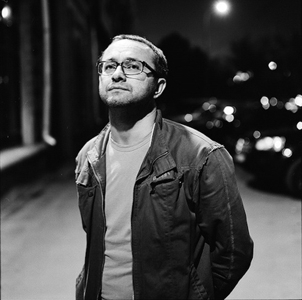Elena: Film Review
07/28/2011
With influences ranging from Woody Allen to Germany's Christian Petzold, Russian maestro Andrei Zvyagintsev's Elena stands out by harking back to classic noir thrillers.
PALIC, Serbia — After suffering a bad case of the dreaded 'sophomore slump,' Russian maestro Andrei Zvyagintsev now stages a spectacular recovery with Elena, amply confirming the vast promise of his 2003 debut The Return. That picture's Venice Golden Lion sparked comparisons with countrymen such as Andrei Tarkovsky but his 158-minute, excessively enigmatic follow-up, The Banishment (2007), suggested he'd taken far too much notice of his debut's glowing reviews. Clocking in well under two hours, Elena shows Zvyagintsev wisely concentrating on plot, character and social/political context rather than portentous atmospherics. The cumulative impact is stunning.
Bafflingly (one might even say 'disgracefully') absent from Cannes competition, it did win Special Jury Prize in Un Certain Regard, the first stop on what will be a long, successful festival-circuit career. One of 2011's most accomplished films from any country, Elena emphatically warrants widespread arthouse and upscale-TV exposure.
Sixtyish, uneducated Elena (Nadezhda Markina, who resembles an older, doughier Frances McDormand) shares a spaciously luxurious city-center apartment - but not a bed - with her older husband, Vladmir (Andrei Smirnov). The pair met a decade before when Elena was a nurse and wealthy Vladimir her patient. Now she's clearly as much caretaker as spouse, the daily grind visible on her wrinkled face and shoulder-slumped frame.
Elena only comes alive when she treks cross-city to visit with her son Sergei (Alexey Rozin) and his family in their cramped, crumbling quarters. Unemployed, slobbish Sergei relies on Elena for cash handouts, which Vladimir grudgingly tolerates as he provides similar assistance to his wild-child daughter Katya (Elena Lyadova). But when extra money is needed to ensure Sergei's son Sasha (Igor Ogurtsov) dodges the army draft in favor of an (undeserved) university place, Vladimir refuses, compelling Elena towards drastic action.
While an unmistakable example of high-end, slow-paced art cinema, Elena stands out by harking back to classic noir thrillers, especially those in which inconvenient, wealthy husbands stand in the way of their wives' financial and/or romantic imperatives. The most potent recent Euro variations are the terse dramas of Germany's Christian Petzold, who adapted James M Cain's The Postman Always Rings Twice into Jerichow (2008).
And whereas Zvyagintsev's earlier films were unashamedly evocative of Tarkovsky's metaphysics, Elena (co-written with Oleg Negin) nods more in Petzold's direction. As in the latter's similarly-titled Yella, ominous crow cries are often heard in the background. Indeed, Andrey Dergachev's sound-design is one of numerous superb behind-the-camera aspects here, along with the location scouting (yielding a range of intriguing townscapes), Mikhail Krichman's precise widescreen cinematography and, most memorably, Philip Glass's score. Glass's string-heavy contributions are few and far between - his insistent, Hitchcock-inflected music crops up at four junctures - but are vital to Zvyagintsev's expert modulations.
These stylish touches are firmly at the service of a story which reminds us that blood is usually thicker than water and that (Russian) crime doesn't always lead to punishment. While claustrophobically specific in its attention to detail, the film has wider, damning implications for Russian society and beyond. As Zvyagintsev (who cites Woody Allen's Match Point as an influence) states, "These people have business-like relations. This is what our world is all about today, and this couple is not an exception."
Elena avoids anything resembling preachy worthiness and, Vladimir's implausible intestacy apart, similarly eschews screenwriting contrivances. Its lessons, while potent, are subtly conveyed. Markina's multi-layered performance ensures that the eponymous hausfrau retains interest, and perhaps even sympathy, despite what we may well conclude are misguided, short-sighted actions.
Neil Youn
"Hollywood Reporter"
